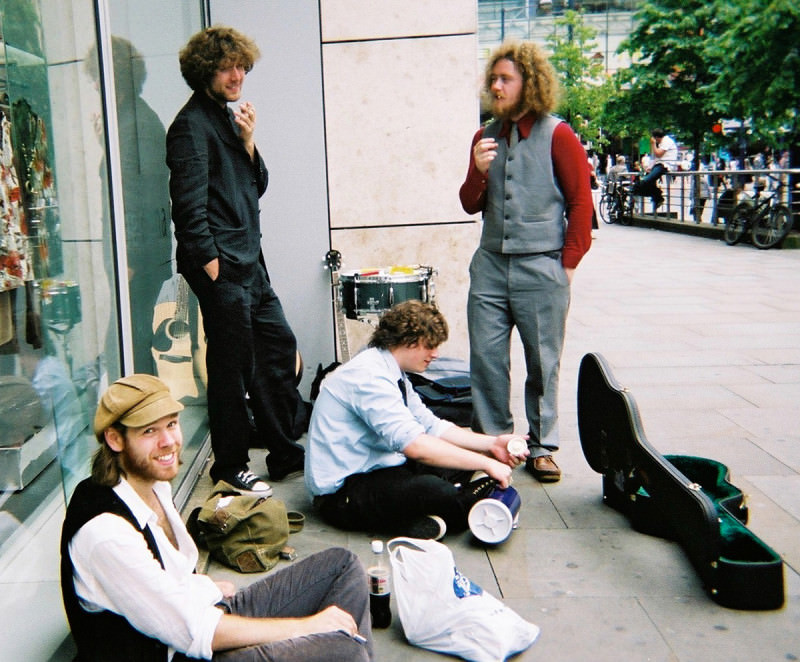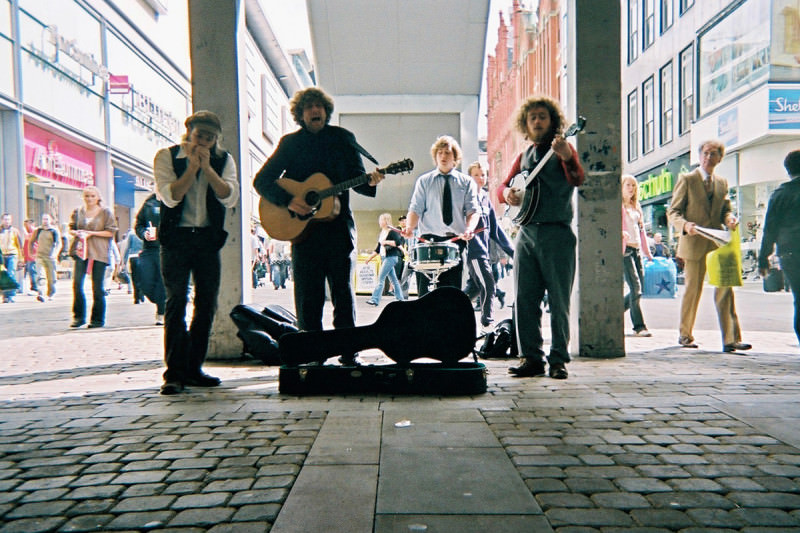I just read another article about how music piracy hurts artists.
Well, I read enough of it to make me roll my eyes before searching for something more relevant to look at.

I mean, seriously? Are we still talking about this stuff? About clamping even sturdier chastity belts onto our art so no one can compromise/exploit/devalue it? I thought all the pirates had lost interest in music now that the idea of owning it has become so passé. Why bother with torrent sites when everything is available to stream? If you’re going to battle anyone then battle the people who fixed the royalty rates so low. The pirates are now moored elsewhere (the illegal ones anyway).
But then, in the creative sector at least, no one is on the same page. We aren’t even all reading from the same book. We all just move at our own individual pace towards the corners of the industry that shelter our preferred line of bogeymen. The internet has put an end to the shared linear narrative (and with it any credible universal nemesis); where there was once a single path there is now a spaghetti junction of possibilities. The music business (to paraphrase an old saying) has become an octopus whose outermost left tentacle doesn’t know what the seven tentacles to the right of it are doing.
I remember when the album-selling wing of the recording industry first showed signs of widespread irreversible decline. A lot of us fell prey to an assumption that everyone was searching for “the new model”. Now, however, I’m far from sure. It seems more like everyone is squirreling acorns away in preparation for some perpetual Narnian winter. Doom-mongers are tramping the digital high streets wearing sandwich boards that read “the future is in copyrights” or “the future is in the live sector” or “the future is in sync deals” or “the future is in apps” – which all sound to me like someone saying “the future is in breakfast” before swapping their placard for “the future is in lunch”.
This tableau is an irksome one. What kind of perverted hive imagination did it require to make the international market for creativity so colossally dreary?
How did we as a species engineer such an evolutionary leap that made us so adept at filleting our own greatness?
But the upshot of all this is that I don’t envy the big acts the way I used to. Never has there been a better time to be niche, to be the architect of one’s own success, away from the second hand ambitions of others.
For though many see it as a devaluing of music, I was glad when the pay-what-you-want model became more widely accepted. Before my band made any records we were buskers. We were on Manchester’s Market Street all day every day singing old folk and country songs in close harmony. Indeed, we became such a fixture that there was even a feature about us on Channel M’s breakfast news. We had crowds linger for the duration of our entire set – crowds so big that the nearby shops would complain to the council about their frontages being obscured from the view of passers by.

Those crowds, however formidable, represented only a tiny fraction of the people who used that busy street each day. But it was enough for us. Our business model hinged on the idea that if you perform music publicly some people will ignore it, some people will like it but not deem it worthy of reward, some people will hate it and some people will love it enough to throw money at you. We made no promises and asked no permissions; we simply delivered what we were capable of. There was an honesty to what we did. And we never once fell behind on the rent.
That model predates the recording industry and will most likely outlive it. Yes, it’s imperfect as a business plan but then so is the idea of plunging thousands/millions into marketing a committee-written pop single that attempts to second-guess an imagined audience’s emotional needs.
The headlines are no longer about how easy it is to rip off artists. That’s old news. Besides, artists have always been ripped off by someone – their label, their manager, their bandmates – it isn’t a new story, just a revolving cast list. The world has gotten used to the idea of music being damaged goods.
It used to be all about size. About the towering rock and roll colossus throwing all else into shadow. About attracting everyone’s attention – worshippers and vultures alike. But the amazing development in the modern music business is the possibility of the immediate connection, that we can achieve a meaningful impression without any dilution from gatekeepers or filters. It is no longer about how big we need to become to achieve success, but rather how small we can be and yet still survive on our own terms. The modern music industries are developing into a network of sophisticated buskers.
I can’t help but see this as progress.

